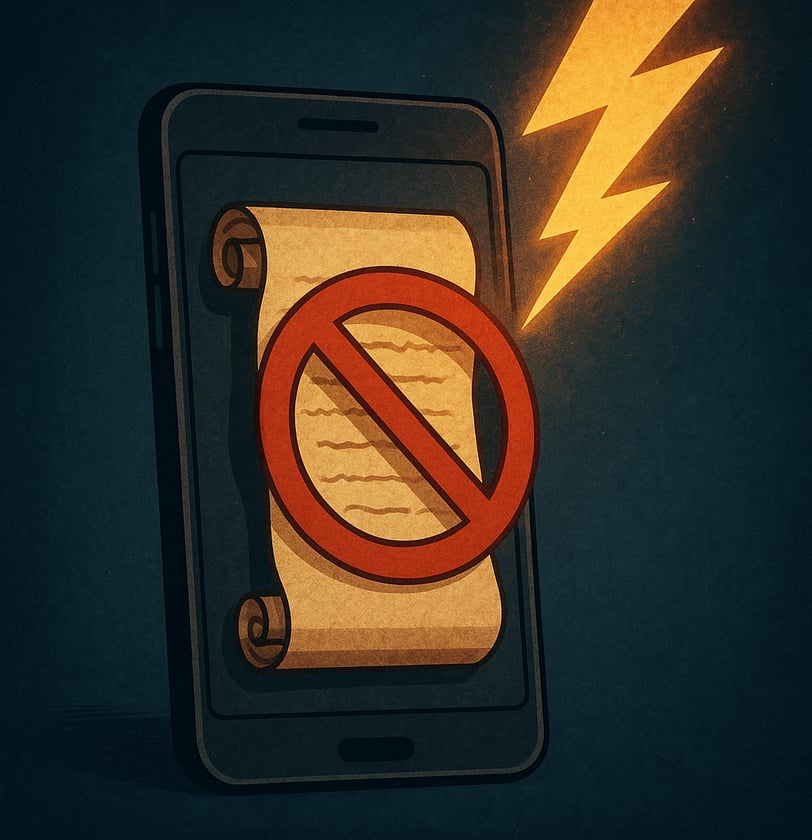Censorship Amongst Centralized Platforms
A Growing Reckoning
MODERN AFFAIRSANALYSIS
SOL Spark and DION
5/27/20254 min read


Censorship Among Centralized Platforms: A Growing Reckoning
In the digital age, the power to shape public discourse has become increasingly consolidated. Centralized platforms—social media giants, search engines, app stores, and web hosting providers—now serve as the primary gateways for speech, commerce, and social interaction. While these entities present themselves as neutral venues for global conversation, the past decade has made it abundantly clear that this is far from the truth.
Take some of many users' favorite social media platforms, they censor to some degree, especially when it comes to sensitive topics involving events around the world, or events taking place locally/domestically. If you don't pay attention, it'll creep up on you sooner than you think.
Historical Precedents
Censorship is not a new phenomenon. From imperial edicts silencing dissent in ancient empires to the book burnings of the 20th century, controlling information has always been a mechanism of power. What’s different today is the scale, speed, and subtlety with which censorship is enacted. Algorithms can suppress visibility without deleting content. Community guidelines can be selectively enforced. Economic and political pressures can be quietly exerted on service providers to de-platform or shadow-ban individuals, topics, or entire ideologies.
Major global events—pandemics, wars, elections—have routinely exposed just how centralized digital gatekeeping can shape narrative boundaries. Whether justified as misinformation control or safety enforcement, the effect is the same: a narrowing of acceptable discourse that can hinder public understanding, erode trust, and stifle dissent.
There are plenty of us out there that have experienced media blackouts of protests against governmental bodies, wars in the middle east, and even the downright deplorable acts that should be considered mainstream news; such things are merely swept under the rug. Even court cases involving high level individuals (those that like to diddle) are even kept out of the spotlight because, more often than not, they go against the agenda of those in power (the puppeteers of our bureaucratic system).
The Impact of Digital Gatekeeping
When centralized platforms decide what is permissible, several harms emerge:
Suppression of Minority Voices: Activists, dissidents, whistleblowers, and artists are often the first to be censored under opaque enforcement rules.
Erosion of Democratic Norms: Free expression is a cornerstone of democratic societies. When discourse is filtered through algorithms optimized for engagement—not truth—public dialogue is distorted.
Chilling Effects: Users begin to self-censor, avoiding topics or phrasing that might trigger penalties, even if such discussion is essential or fact-based.
Narrative Monoculture: Centralized moderation encourages the dominance of sanitized, mainstream consensus narratives, often to the detriment of scientific, political, or cultural advancement.
These consequences are not theoretical—they are observable, compounding, and increasingly normalized.
Simply accepting that censorship is the norm is not normal in a free and (semi) civilized society. Voices should be heard, not silenced. And we're not talking about the racial-based or even hatefully derived rhetoric either. Its in our scientific communities, in our schools, in social circles (to some extent) and its rather prevalent in politics if you pay attention.
The Inevitable Exodus
Human expression, by its nature, seeks space to breathe. When traditional platforms restrict this space, users begin to look elsewhere. This is already evident in the rising adoption of decentralized social networks, encrypted communication tools, blockchain-based publishing platforms, and distributed hosting networks.
What begins as a trickle becomes a migration. As trust erodes, users gravitate toward ecosystems that prioritize transparency, immutability, and sovereignty over control. The next generation of digital platforms will not simply compete on features—but on principles. Many of these alternatives already exist in seed form. Others are just emerging. And some have yet to step into the light.
Now we're not going to attempt to point fingers at platforms in particular (we already know who does a lot of censoring), and the fact of the matter is that this will continue to be an issue. Whether its someone making a dumb fart joke that's taken out of context to a whistleblower who's trying to get the word out about something massive, censorship is something that is, and will continue to be, a problem regardless of the type of content that is posted.
Sure, there are levels of censorship that will be considered "justified" by these central platforms, but instead of merely wiping the voices off of the map, one thing to take into consideration is merely to slap a label on them, put them into an arrangement of sorts, and let a user's personal filter settings take care of it. You may not agree with what they have to say, especially if its extremely radical, though the right to free speech should be upheld.
This can be considered a grey area in a variety of contexts, especially if hate speech or malicious intent is involved, the bottom line is this: the more power that is given to these platforms to censor some of us, we open the flood gates to censor all of us, especially those that speak against the agenda or status quote.
What is even clearer is this: systems that nurture open discourse—rather than limit it—will be the ones that flourish in the years to come.
Closing Thoughts
Censorship by centralized platforms may provide short-term control, but it invites long-term instability. It alienates creators, disillusions communities, and fractures the credibility of the platforms themselves. And surprisingly, web 3 positions many platforms to take advantage of the next technological leap, and some might even take advantage enough to shove the big players off the chess board given the right execution.
All in all, the pendulum of digital power is swinging, and as it does, the platforms that listen, adapt, and open their gates—rather than reinforce their walls—will define the next chapter of the internet.
All it takes is a single SPARK to get the gears turning.
